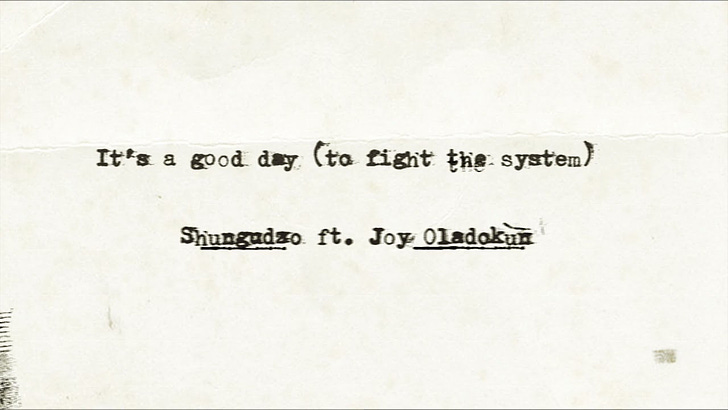It's a Good Day to Fight the System
I moved to South Carolina in 2012 to teach at Presbyterian College, a small rural liberal arts institution in Clinton, just off the interstate between Greenville and Columbia. One of my first students in what has become a decade of badass PC graduates was Grant Burnette LeFever, a brilliant double English and History major (’13) who did things like write a compelling sixteen page essay for a World Literature final. Meeting Grant, and her parents Mike LeFever (PC English class of ‘69) and Malissa Burnette was a wonderful introduction to how PC is a quiet force for social justice in the state. Malissa is one of our most important South Carolina feminist leaders, fighting for equal protection for women and LGBTQ people in employment, sports, college admissions, and reproductive rights.
After finishing law school in 2018, Grant joined Malissa at her law firm, Burnette Shutt McDaniel. Their firm is challenging the current SC law that bans abortions after six weeks, representing Planned Parenthood South Atlantic and the Greenville Women’s Clinic, suing the state on the grounds that the current law violates the right to privacy outlined in the South Carolina Constitution. Grant and Malissa are fierce advocates for equal rights for all South Carolinians, and it’s my great honor to host Malissa for Hot Feminism’s first interview.
Planned Parenthood is an important resource for many people in the state, especially in poor and rural areas where it is often the only source of accessible reproductive care. Malissa’s support for the organization has also shaped her personal life: she started dating Mike after they socialized at a fundraiser, and she found out she was pregnant with Grant at a Planned Parenthood clinic.
Emily: What is the most important thing for people with uteruses to know about the legal landscape in South Carolina now that Roe v. Wade has been overturned?
Malissa: When I was in high school one of my best friends simply “disappeared” and her parents wouldn’t tell me what happened to her. I learned at our 20th reunion that she had become pregnant and they had shipped her off to relatives to hide the shame. In college I knew classmates who took desperate and dangerous measures to end their unwanted pregnancies. My roommate hemorrhaged and I took her to the USC infirmary where she was met with hateful scorn by the head physician, who was my father. And I was deemed guilty by association with her.
After Roe v. Wade was decided, women and girls experienced a collective sigh of relief as they reclaimed dominion over their own bodies. Safe, legal abortions allowed women to live healthier lives, determine when and if they wanted to become parents, and advance their education and economic independence.
Now that Roe v. Wade has been overturned, people with uteruses have lost their bodily autonomy. Currently in South Carolina, the “fetal heartbeat” law bans abortions, with few exceptions, before most people even know they are pregnant. But that is not the worst of it: South Carolina lawmakers, despite a majority of citizens supporting abortion rights, plan to pass legislation banning all abortions. And Governor McMaster says he will sign it into law.
Emily: I read these laws and I wonder about enforcement. Will police really arrest doctors and medical staff? What about patients seeking care?
Malissa: The “fetal heartbeat” law now in effect provides for criminal prosecution of doctors and medical staff under certain circumstances. This law will have a chilling effect on providers who will delay or deny medical treatment for fear of violating the law. Doctors and nurses are concerned that the law clashes with their ethical, moral and legal duties to provide care to patients, so they are in a no-win situation.
Law enforcement reaction to the law seems varied, with some expressing reluctance to enforce, while others may be eager to punish perceived violators, even patients and those seeking to assist them. I expect the law will not be enforced with consistency but will be left to the subjective judgment of local law enforcement.
On Tuesday, July 26, a hearing will be held in state court in Richland County in a lawsuit filed by Planned Parenthood and others to try to obtain a Preliminary Injunction against the fetal heartbeat law pending a hearing on the merits of our lawsuit challenging the constitutionality of that law under the SC Constitution’s right to privacy provision. Unlike the US Constitution, the SC Constitution contains a right to privacy.
Emily: I know a lot of people are feeling helpless. What can we do in South Carolina to fight for access to abortion care for all South Carolinians?
Malissa: Speak up! Contact members of the SC House and Senate now! Tell them that abortion IS healthcare and people with uteruses must be able to make their own decisions about their own bodies. We are not breeders or the property of men. Also, please make monetary contributions to organizations that help fight for you, and those that will help transport those in need to other states if necessary.
Thanks for reading! Consider supporting organizations like the League of Women Voters of South Carolina: https://my.lwv.org/south-carolina-state, the Women’s Rights and Empowerment Network: https://www.scwren.org/, Planned Parenthood South Atlantic: https://www.plannedparenthood.org/planned-parenthood-south-atlantic, and the Carolina Abortion Fund: https://www.carolinaabortionfund.org/
Read more about Grant here: https://burnetteshutt.law/attorneys/grant-lefever/
Watch this video profiling Malissa: https://www.scetv.org/stories/2020/malissa-burnette-women-vision-sc
And to keep your spirits up:



